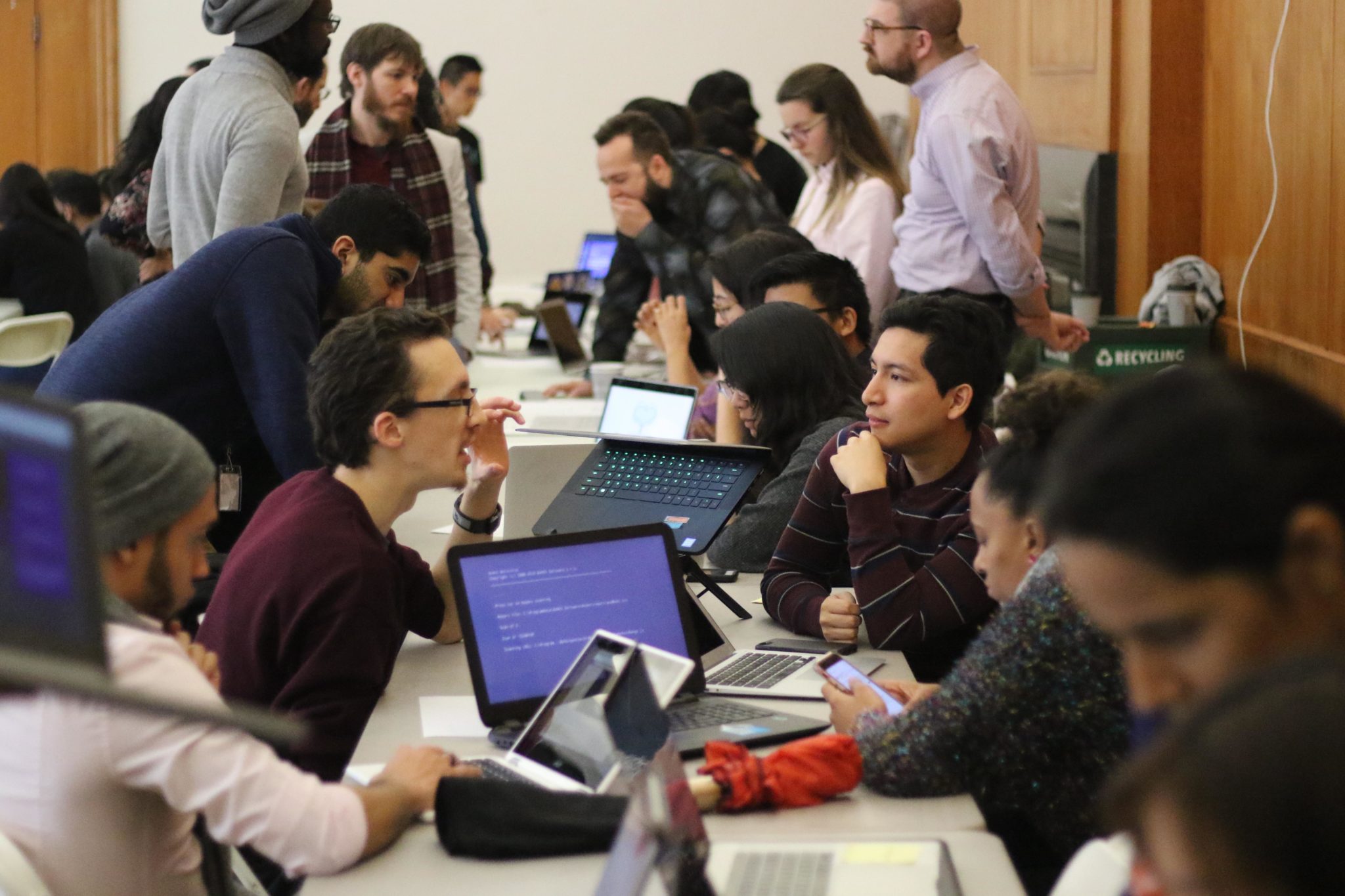
Neehaar Gandhi
Hack Mental Health, a hackathon aimed at developing technological solutions to mental health concerns, drew participants from around the world this past weekend.
Sponsored by Google, Yale internship program Bulldogs in the Bluegrass and the journaling and tracking tool Therachat, the hackathon saw about 250 participants convene at the Edward S. Harkness Memorial Hall from Friday evening to Sunday evening. According to the Hack Mental Health’s website, the event aims to bring together experts in psychology, technology and business to help participants develop technology that can improve mental health.
“Sponsored by Google, Yale internship program Bulldogs in the Bluegrass and the cloud communications platform Twilio, the hackathon saw about 250 participants convene at the Edward S. Harkness Memorial Hall from Friday evening to Sunday evening.
“The overarching prompt that the participants have been given is: how can we leverage technology to change mental health, to change perspective about mental health and alleviate these issues?” said Neehaar Gandhi ’21, one of the organizers of the hackathon and a photography editor for the News. “While other hackathons focus on developing projects that can earn a lot of money, our hackathon focuses on using technology to help people.”
The hackathon began with an opening ceremony on Friday, followed by a product demonstration given by Twilio. A talk by writer Lucas Chae focused on the effective use of User Experience and User Interface in helping users with mental health problems.
On Saturday, a series of lightning talks lasting two hours focused on how different individuals overcame mental health challenges. Greg Baugues, a software engineer at Twilio, spoke about his struggles with depression and ADHD in college. Contessa Krystal McDowell, a fifth-grade inner city teacher, spoke about dealing with trauma, drawing from her personal experience of her grandfather, aunt and uncle committing suicide as she was growing up.
The organizers made sure that the hackathon — an event focused on mental health — did not become too stressful for the participants.
“We ensured an eight-hour-long code freeze so that all the participants could get enough sleep,” said Tony Xu ’21, the Yale Hack Mental Health planning lead.
In addition, the hackathon had a yoga workshop and a guided meditation workshop to alleviate stress levels and encourage good mental health practices. However, according to Xu, for many of the participants, their favorite activity was interacting with the therapy dog brought in for the hackathon.
On Sunday, the participants were required to give a science fair-style presentation of their projects. The top three scorers in each of the three challenges of the hackathon — suicide, substance abuse and collecting mental health data — gave final presentations, a three-minute pitch explaining their project, at Harkness Auditorium.
A Google Chrome plug-in called “Flip” bagged the first-place prize. Flip uses code to gauge if users are reading emotionally depressive content online and if they do, suggests a curated list of happier articles for them to read.
“Suicidal behavior and negative mental health spread very quickly, typically among adolescents,” said Eden Almasude, one of the developers of Flip and a psychiatry resident at Yale School of Medicine. “Flip uses natural language processing to identify content related to suicide and suggests an alternate article that talks about mental health focusing on recovery. This is different from filters that block content about suicide and depression and instead frames it in a different way, opening up the conversation on mental health.”
Other projects that the participants developed include an interactive chatbot built into the Facebook messenger app called “Chicken: Check in Anywhere” that detects depression and anxiety; a web and mobile application called “Sonda” that allows patients to work with their therapists over digital messaging or over the phone; and an app called “Connect Well” that aggregates all mental health resources available at a college campus into a single app for a more personalized experience.
According to the National Alliance on Mental Illness, one in five U.S. adults experiences mental illness in a given year.
Ishana Aggarwal | ishana.aggarwal@yale.edu
Correction, Feb. 26: A previous version of this story incorrectly identified Therachat as one of the sponsors of the hackathon. In fact, Twilio, a cloud communications platform, is a sponsor of the event.







